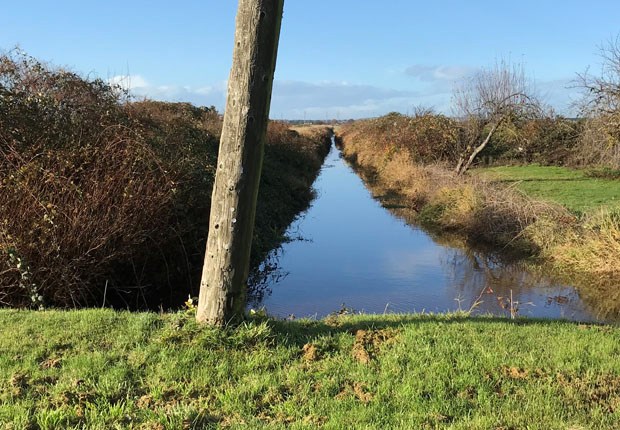Will we start seeing sewage sludge trucked into South Delta?
A report to Delta council last week raised alarm that the provincial government is considering legislation that would add undigested sewage sludge and mushroom growing substrate as organic materials suitable for composting.
The Green For Life composting facility in East Ladner is currently permitted to receive up to 150,000 tonnes of feedstock material annually, but under an agreement with Delta, sewage material is currently not allowed.
Coun. Bruce McDonald told the Optimist the city “partially” has a veto on materials going there, which includes sewage sludge, but he’s concerned that the province listing sewage as acceptable could pave the way for it to be sent to the 72nd Street facility after it is remodeled and enclosed.
“That’s the worry. Victoria is looking for places to put stuff, so if you have a facility that’s capable, why wouldn’t you use it?” he asked.
Another major concern is that the material would end up on local farms, he noted.
“Just think how much it cost to take every head of romaine lettuce out of every store and storage in Canada and a third of the U.S.A,” McDonald said.
“I find this absolutely stunning that the province would even consider this. You can’t use it on crops, you can’t use it on parks, you can’t use it on places where people are because in human sewage there’s all kinds of pathogens. They’re finding stuff coming out of sewage treatment plants that they never even knew existed, and Annacis Island is state-of-the-art. It’s very hard to find and very hard to treat and deal with. Metro Vancouver has taken that position with the sewage sludge from Annacis. It can’t be used in areas that are for human consumption or activity.”
A Delta staff report states the province’s position has changed because composting operators are interested in the material as feedstock. That report suggests the province should not allow undigested sewage sludge as an acceptable feedstock for composting.
Coun. Lois Jackson said she’s surprised the province is considering adding sewage sludge to the list of acceptable materials.
“I do know that the Metro Vancouver staff have said that they don’t want sewage sludge used anywhere near farming for crops. I honestly don’t know what the province is thinking on this one. Sewage on crops is not a good way to go, no matter what form that may take,” she said.
Mayor George Harvie said at last week’s council meeting he was “very shocked” at the proposed inclusion, noting it could pose a threat to Delta’s agricultural irrigation system. He has since written a letter to Environment Minister George Heyman outlining Delta's concern about the prospect of raw undigested sewage sludge being viewed as acceptable organic matter for composting.
The council report notes over-application of nutrient rich material on a property can result in water and air pollution extending well beyond that property’s boundaries. The report goes on to say that excess nutrient runoff from fields has been implicated in poor water quality in Delta’s ditches.
The province says it’s undertaking a review to ensure regulations remain protective of human health and the environment.



